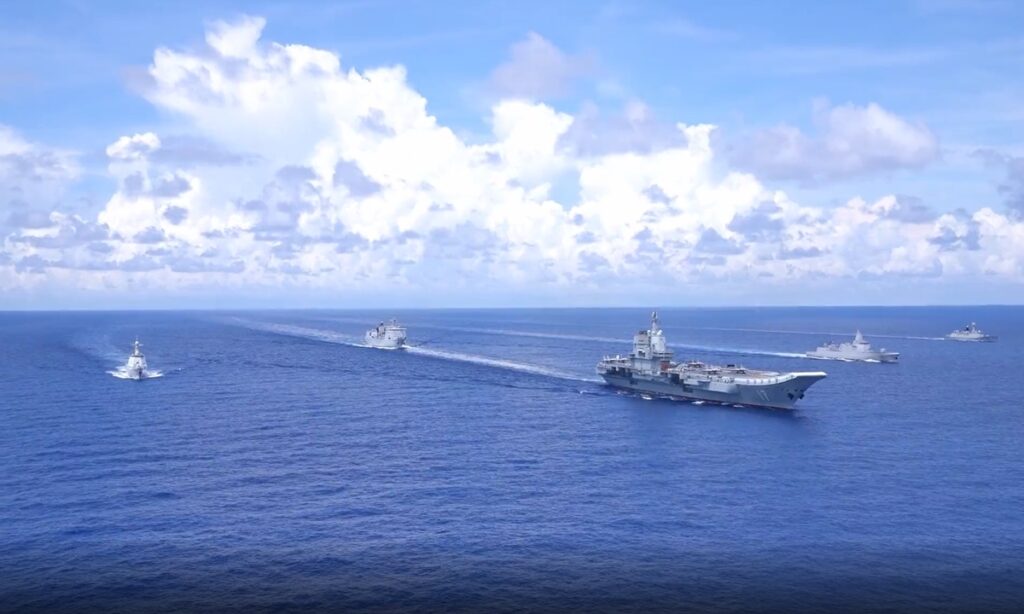The Shandong aircraft carrier group of the Chinese People’s Liberation Army (PLA) Navy recently held a series of confrontational drills in the South China Sea at a time when a US carrier strike group had entered the region, with analysts saying on Sunday that the Chinese carrier has practically enhanced its combat readiness, while the US carrier only stirred up tensions and had limited military significance.
Consisting of several different types of warships and dozens of warplanes, the Shandong aircraft carrier group conducted realistic combat-oriented confrontational exercises in the South China Sea, the PLA Navy said in a statement on Saturday.
The drills simulated hostile aircraft attacks, and J-15 fighter jets took off from the Shandong and carried out interception training, the statement said.
During the exercises, the carrier group also practiced cross-service multidimensional attack and defense on the surface, in the air and underwater, with new J-15 pilots becoming certified for nighttime operational capabilities, marking another big step toward forming a systematic combat capability, the PLA Navy said.
Photos attached to the statement showed that J-15 fighter jets crowded on the flight deck of the Shandong, an indication that the Shandong is equipped with sufficient aircraft, a Chinese military expert who requested anonymity told the Global Times on Sunday.
The Shandong carrier group carried out challenging nighttime warplane sorties and combat drills under realistic tactical settings, showing that the domestically built vessel has reached a high level of operational capability following its commissioning in December 2019, the expert said.
Thanks to experience gathered from the PLA Navy’s first aircraft carrier, the Liaoning, the Shandong achieved operational capability fast with a full standard procedure, Song Zhongping, a Chinese military expert and TV commentator, told the Global Times on Sunday.
By training in the South China Sea, a location where the maritime environment is more complicated, the Shandong demonstrated its capabilities despite challenging situations, Song said.
The training in a flotilla also showed the Shandong has integrated with other vessels, Song said. “The Liaoning recently conducted drills in the West Pacific, and now the Shandong is practicing in the South China Sea. In the future, the two carriers might form a dual carrier group and train together,” he said.
On Thursday, the US Navy announced that its Nimitz carrier strike group began operating in the South China Sea, with two Chinese ships tailing, CNN reported on the day.
Attempting to threaten China, the US aircraft carrier’s activities in the South China Sea actually have limited military significance and will only stir up tension in the region, experts said.
A recent war game scenario run by the Washington-based Center for Strategic and International Studies indicated that the US would lose its aircraft carriers should they interfere in a possible conflict in the Taiwan Straits.
It is normal that the PLA monitors potentially provocative foreign military moves on China’s doorstep, and the foreign forces would serve as practice partners that contribute to the PLA’s combat readiness, analysts said.
In December, a US RC-135 spy plane engaged in dangerous maneuvers against a PLA Navy J-11 fighter jet that was monitoring the US aircraft during the latter’s close-in reconnaissance of China over the South China Sea.
The Chinese pilot took professional and standard action according to laws and regulations, fully reflecting the Chinese military’s responsible attitude toward regional safety and the safety of frontline personnel, said Senior Colonel Tian Junli, a spokesperson of the PLA Southern Theater Command.
(Global Times)




